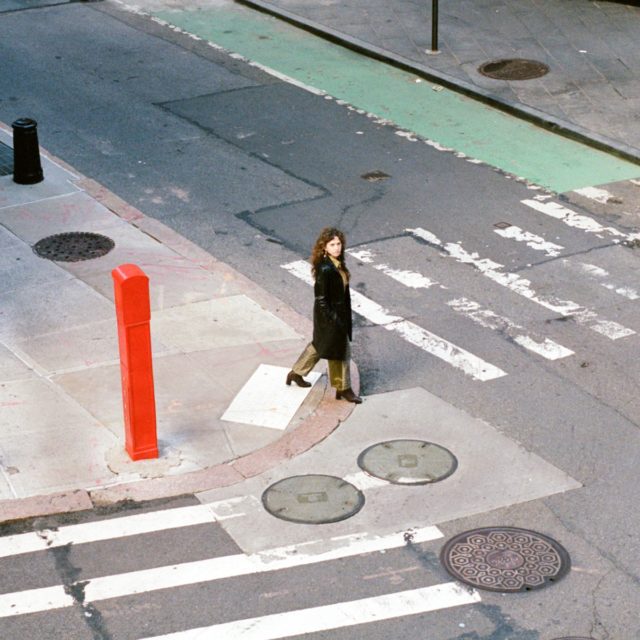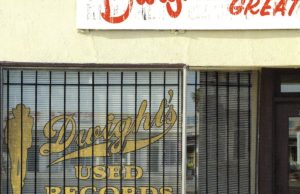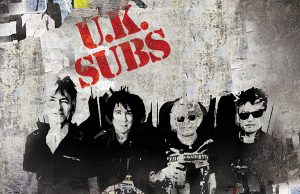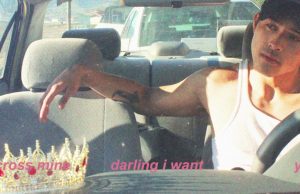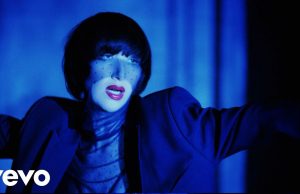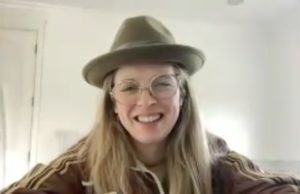THE EDITED PRESS RELEASE: “It’s rare to hear a voice that immediately commands your attention, without reminding you of anyone else, and transforms the energy in a room. Ivy Meissner, the Brooklyn singer and songwriter behind Little Mystery, is this kind of singer.
Her resonant, blues-inflected delivery derives its power from alluring contrasts — smoky and crystalline, inviting and defiant, wry and vulnerable. It is invested with the same warmth and grit as her songwriting, which combines the erudition of Tom Waits and Joni Mitchell and the unrepentant attitude of Bonnie Raitt and Chrissie Hynde with a frank and vulnerable perspective all her own. On her self-titled debut as Little Mystery, Meissner sublimates elements of folk, ’60s pop, early R&B, ’70s rock and more into a commanding musical vision. Across these varied musical settings, she traverses the full range of human emotion, penning chapters in a unified narrative about confronting the worst parts of one’s past and struggling to connect with ourselves and others in an fractured, anxiety-ridden world.
Though the outpouring of emotion in these songs feels natural and linear, the music is constantly changing direction. The rhythms of Meissner’s text inspire idiosyncratic shifts of dynamics and meter: The cadence of an offhanded conversation, the timing of a joke, or the weight of an unwelcome realization. The poetry feels so close to her heart that we feel privileged to be taken into her confidence. This sense of intimacy is enhanced by the home-spun quality of the recording, which was done almost entirely in Meissner’s apartment. Most of the rhythm tracks were captured in one to three takes by her crack backing band, featuring Brooklyn ringers Adam Brisbin on guitar, Connor Parks on drums, Ian Davis on bass, and co-producer Julian Cubillos on numerous instruments and arrangements. As Meissner explains, the aesthetic was inspired by the organic, in-the-room sound of hallowed Alabama studio Muscle Shoals and “records like Harvest that you want to crank up because they are so warm and heavy.”

Though Meissner considers Little Mystery her proper debut, she has been recording and performing original music for most of her life. Born and raised in the San Francisco Bay Area, Meissner began her cultural education at an early age, absorbing classic rock and Motown before she was a teenager and eventually performing her own songs as part of a duo with her sister. At the turn of her 20s, she began carving out a niche in the N.Y.C. indie scene, playing under her own name and broadening her musical horizons through collaboration. Upon meeting Cubillos in the mid-2010s, Meissner found clear kinship in terms of taste and approach — a confidant who encouraged her to follow musical instincts that were outside of the norm.
Gradually, she found new inroads with her writing which eventually produced the batch of songs on Little Mystery, which appropriately evoke different moments of awakening. Meissner wrote most of the material in one burst during the early months of the pandemic, spurred on by her harrowing experience tapering off of a medication she’d been prescribed for nearly a decade. Between brain zaps and other intense side effects, Meissner noticed latent feelings surfacing, leading her to reconstruct painful, personality-shaping events from her past in detail. “So [many things] that I hadn’t processed [for] my entire adult life just came through,” she recalls. “I had suppressed so much.” In her candid and unvarnished vocal takes, Meissner addresses familial, societal, and romantic dysfunction, sometimes re-inhabiting past situations to process conflict in a way she felt unable to at the time.
Across the album, sources of frustration and grief emerge from every direction. The simmering, finger-picked meditation The Garden examines the dynamic between a mother and her children — a relationship complicated by distance and changing convictions. Opener Eye of the Storm positions Meissner as one incensed voice among billions assessing their own complicitness in institutionalized injustice. As It Seems emerges from a similarly visceral place but deals with a toxic interpersonal dynamic; over a swaggering New-Orleans-flavored arrangement, Meissner pushes back against a former partner’s tidy narratives about their relationship. “Oh and maybe I fought to be heard / But you let them talk at me / You got all the words / You’re so naive,” she sings.
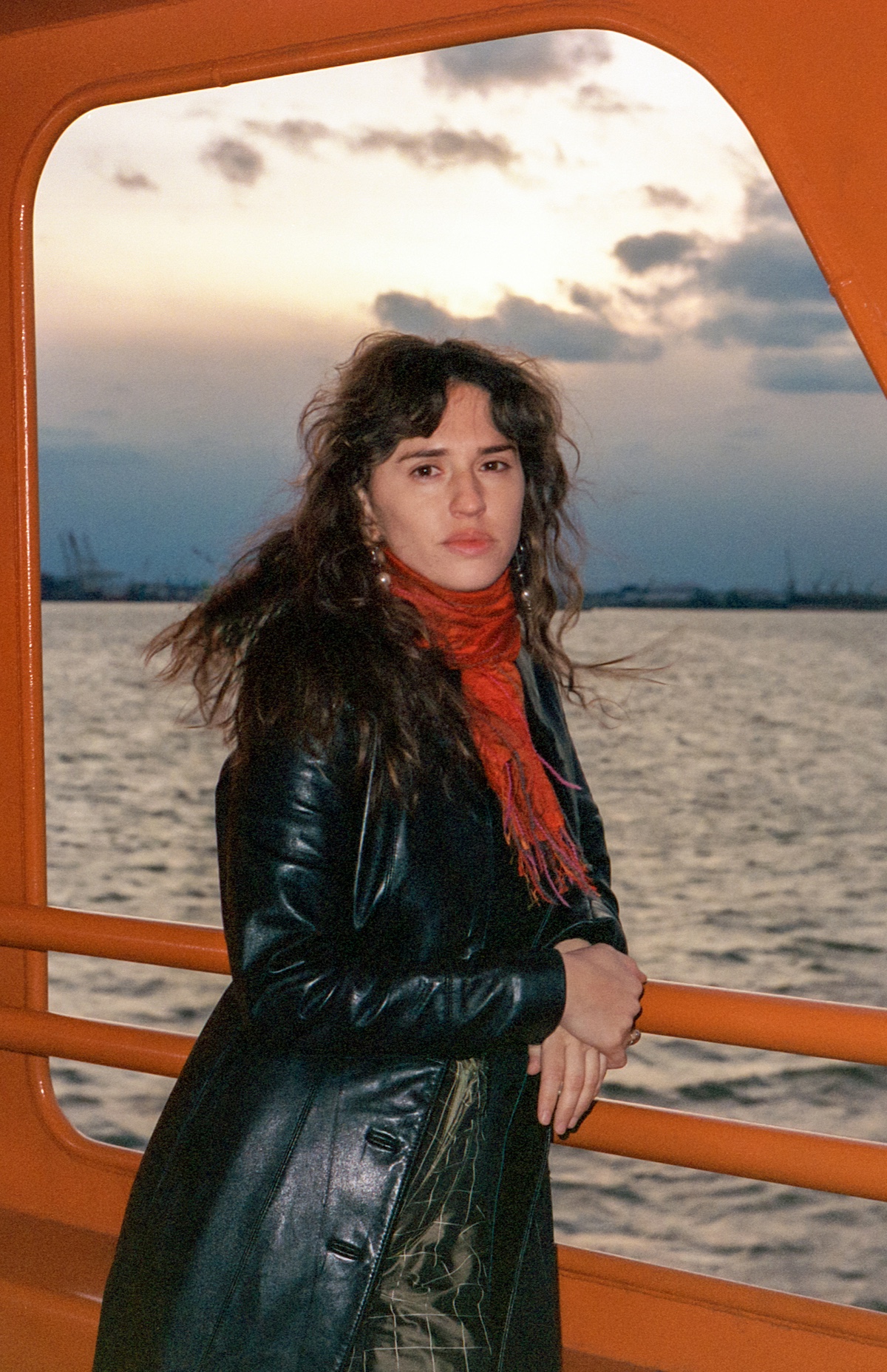
The urgent miniepic Shame, though, is the emotional lodestone of the album, musically upbeat — with shades of Loaded-era Velvet Underground and T. Rex — but lyrically gut-wrenching. In it, Meissner traces years of fallout from a formative traumatic experience that she suppressed and kept to herself. “They asked me if I was all right / Would I be this angry if I hadn’t lied?” she sings. “Like any woman, I was told to hold my pain close / Oh, I made it mine.” As a vocalist and writer, Meissner is at her most effusive here, running off adrenaline; there is seemingly so much to get out that her words nearly trip over each other. Still, her fluid and commanding delivery evokes the sense of empowerment that comes from newfound clarity of thought.
Many of the most affecting moments on the album are less explosive, serving as snapshots of difficult moments in a mature partnership. The sludgy Orbit finds a couple struggling to support one another and avoid taking on each others’ moods. Burning Blue — a gorgeous, piano-augmented ballad — describes a relationship in which extreme intimacy threatens to impede individual growth. Meissner and close friend/labelmate Alena Spanger ascend into the stratosphere in the chorus, cascading down in elliptical melodic phrases that illustrate the lyric: “I’ll run circles ‘round my mind / Lose myself to keep your eye.” Easy is similarly balmy and melancholic, using string sweeps and tremolos to underscore some of the album’s most indelible turns of phrase: “Tell me you’re here / When I’m losing my hold / On the way I want to be yours.”
In these unsparingly honest moments, the narrator alludes to a better possible world on the other side of the crisis is at hand, and gradually, hope seeps into the record. Ultimately, then, Little Mystery seems to piece together a triumphant story rather than a painful one, serving as a tribute to the freeing power of confronting hard truths, both as a person and an artist. The journey toward healing feels surprisingly painless for the listener, as Meissner accounts for these bumps in the road with infectious pop-rock songs of the highest order. Through it all, her voice is grounding and definitive, encouraging us to push back against negative thinking and chase down dreams we’ve left deferred.”













